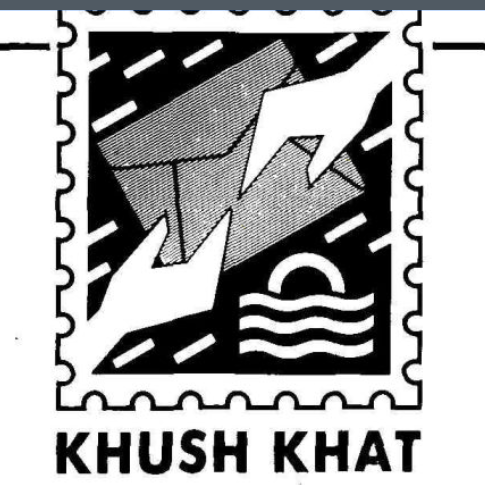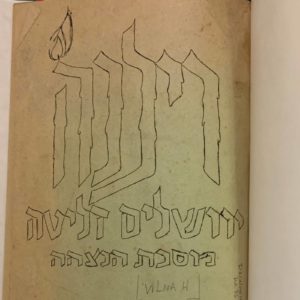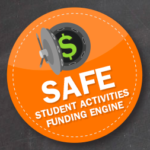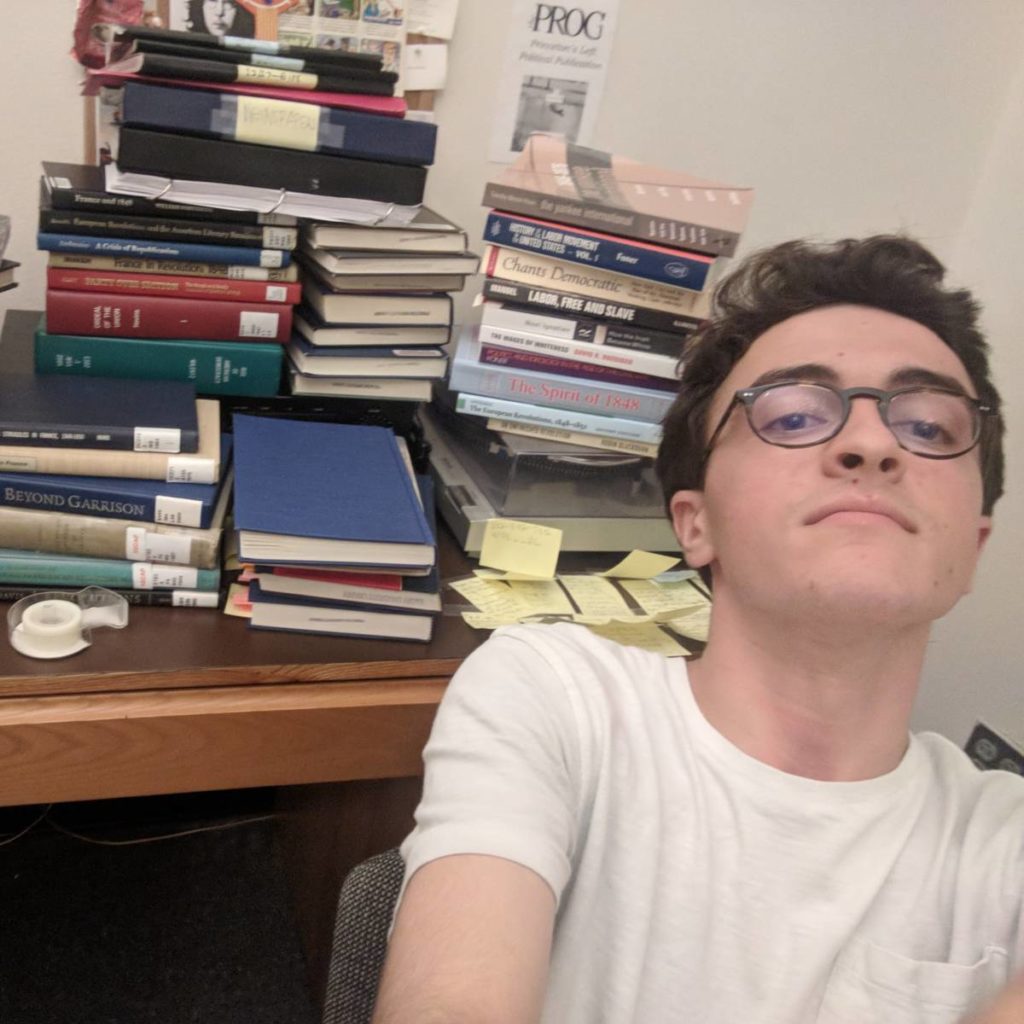Like most students at Princeton, I am really looking forward to next semester. Having taken into account the pandemic and the Princeton community’s well-being, the university is offering all undergraduates the option to return to campus, even though most classes will still largely be held online. Consequently, Spring 2021 will be the second time since the pandemic began where we can experience a different side of Princeton – a hybrid semester, where there will be a mix of in-person and virtual classes. A hybrid semester presents a lot of opportunities to enhance the educational experience from a fully virtual semester like the one we had this fall. Next semester, I am looking forward to the small things — like seeing more students outside of classes and interacting with them as guidelines allow. However, it is likely that there will be new and old challenges for students on and off-campus. Although it is difficult to predict exactly how the semester will unfold, I outline three challenges that stand out to me, so that we can prepare for them beforehand.
Continue reading Coming Back to Campus in January? A Look into a Hybrid Semester and its ChallengesLost and Confused? Create a Map!
It’s said that a picture tells a thousand words; a map, however, can tell you a million.
To me, maps are not just tools for navigation. They have a variety of uses, enabling their creators to visualize a vast array of data efficiently and quickly. From questionable election forecasts to the location of monuments in a city, anything of your choosing can be mappable. Maps, in my experience, can be one of the most powerful tools in your research toolbox. Thus, I want to show you how you can use maps in your research, and the power they hold!
Continue reading Lost and Confused? Create a Map!Time Management Tips for Navigating Zoom University
Oh, it’s unfortunate that your classes are all online now… But all the extra free time must be nice, right?
Actually, no. Somehow, I have ended up in a place where I’m busier than I was back when school was offline. And that’s without Powerlifting Team practices, the thirty-minute dinners that consistently turned into three-hour-long social gatherings, and all of the hours I spent working on-campus jobs.
I’ve realized it has to do with my relationship with time. In the past, I didn’t need to be very intentional with my free time: it always just happened. Nowadays I think back fondly to my naïve visits to the Rocky Common Room for pre-bedtime cereal-breaks, only to end up practicing handstands on the rug by the piano with my friends until 2 am.
Without spontaneous social interaction, I ended up filling up all of my time with work, clubs, projects, and research. Unfortunately for first-year students, these challenges are only compounded by the transition to college academics in general. Whether or not you feel like you’re busier this semester, I believe we can all benefit from evaluating how we make time for ourselves: below are five tips I’ve implemented to help facilitate a productive and sustainable semester this fall.

Archival Research in the Age of COVID-19: Requesting Document Scans from Libraries
When I first applied for departmental senior thesis funding early this spring, everyone was still uncertain about how long the effects of the COVID-19 pandemic would last. It seemed departmental administrators were optimistic: funding requests could still be made for summer travel. In my application, I detailed my intent to travel to university and state archives throughout the U.S. south for a thesis examining how antebellum Mississippi Valley planters conceptualized the idea of labor. But before I even heard back about whether I was to receive support, the department updated its funding parameters to prohibit summer travel and I had to redo my application in turn. My summer plans, of course, were not the first academic casualty of the strange 2020 world; nor would they be the last. Fortunately, though, there were ways to work around my newfound limitations: all of the archives that I wanted to visit offered services for resident librarians to scan and send materials from their collection, so I updated my application to ask for funds to pay for associated fees. Here, I’ll be sharing some tips for requesting archival materials to be scanned, which I hope will be helpful to any researcher unable to travel (pandemic or not).
Continue reading Archival Research in the Age of COVID-19: Requesting Document Scans from LibrariesHow to Complete Research Assignments during Quarantine
This year, as we prepare to write our final papers in quarantine, it will be extra tough to locate the sources we need for our research. Without in-person access to campus libraries, this Dean’s Date will require some new strategies for accessing research materials. To help with this process, I’ve collected a few virtual research resources from my weeks of quarantine thesis work, as well as the beginnings of my Dean’s Date research (also check out Alec’s recent post for more tips):
Do not underestimate the library catalog. A lot of sources are available online, especially with the University’s new partnership with the HathiTrust Digital Library. Through this partnership, millions of scanned books have been made temporarily available to students—in addition to Princeton’s many existing online holdings. To see if a book is available online, just search for it in the Princeton library catalog. If you don’t see a digital edition listed, try clicking on a print edition and seeing if a scanned version is available through HathiTrust (if it is, there will be a link just below the book’s title and general information). You can also click the “Request” button under “Copies in the Library,” then “Help Me Get It” and a librarian will do their best to send you a digital copy—if it’s available—within a few days.

Research Resources: Unsung Heroes, An Interview with Gender and Sexuality Studies Librarian Sara Howard
For this year’s Winter Seasonal Series, entitled Research Resources: Unsung Heroes, each correspondent has selected a faculty member, staff member, or peer working for a research resource on campus to interview. We hope that these interviews will provide insight into the variety of resources available on campus and supply the unique perspective of the people behind these resources. Here, Kamron shares his interview.
A few weeks ago, I interviewed Sara Howard, the Gender and Sexuality Studies and Student Engagement librarian. I’ve found that I often don’t use all the available research resources to my benefit. Given that we have all recently transitioned on an online learning community, consider meeting with your librarian over Zoom!

Interlibrary Loan and the Magic of Online (Research) Shopping
[Note: This post was written before COVID-19 reconfigured our library access. Interlibrary Loan is no longer accessible for students, but its sister program, Article Express, is still running at full speed!]
Every so often, when reading sources for my thesis, I come across a citation for a book or article I can’t find in the Princeton library catalog. Of course, given the size of Princeton’s holdings, these moments are rare—though somewhat more frequent as I’ve entered the fine-grain stages of my research project. In the past, a dead end in the library catalog was enough to convince me to give up on a source. However, the exigencies of my last month of thesis writing have pushed me to use what might just be the most magical tool in the Princeton library toolbox: Interlibrary Loan (ILL).

Whereas Borrow Direct and Recap only provide access to books listed in the Princeton library catalog, Interlibrary Loan can provide access to… pretty much any source you could possibly need. ILL has two main request options: Article Express (for scans of specific articles and book chapters) and Interlibrary Loan (for larger sources, like books, audio/visual materials, and microreels).
Continue reading Interlibrary Loan and the Magic of Online (Research) ShoppingSecuring Funding to Attend a Conference
In a recent post, I wrote about submitting an extended version of my R3 to the Gender, Work, and Organization Conference in the United Kingdom. Although I’m very excited to attend the conference, a new challenge has recently presented itself to me: securing funding.
In this post, I’ll detail some of my experiences finding funding for my conference. Considering that many of you have recently applied for Princeton Research Day and may be considering submitting your manuscripts for publication in a journal or for a conference, I hope this post is helpful!
Continue reading Securing Funding to Attend a ConferencePreparing for your Senior Thesis Before your Senior Year: Tips on Funding your Research
My most recent post focused on gearing up towards your senior year and finding a thesis adviser. I decided to continue this mini “preparing for your senior thesis” series by providing some tips on funding your research! The infamous senior thesis is such a daunting thing to think about as a junior because it is not always clear how early you should begin to plan for it and what steps you should take. At the beginning of the year, I attended an information session through the Woodrow Wilson School regarding thesis research funding. During that meeting, the speakers told students that they should start working on applications for funding as soon as possible if they wanted to receive money for their endeavors.

Research: Have Fun With It!
The second time I met with my independent Junior Paper adviser this semester, I was nervous. I had decided following our first meeting that I wanted this JP to be the continuation of research I had, at that point, started nearly two years before (that project on the 1848 revolutions that keeps popping up in my posts), and I was apprehensive to present ideas that I felt might be stale; at the time, I struggled to think of ways to expand the project to something more mature than what I had begun as a first year student. Plus, I was feeling reluctant to be finishing up a project I had been working on for most of my college career.
My adviser and I discussed some of these concerns of mine, and right before I left, he smiled and said, “Alec, have fun with it.” He repeated this phrase at many of our weekly meetings, especially if I came feeling overwhelmed by often self-imposed worries. It was usually paired with a reassuring statement: “You know more than you think you know.” I knew more than I think I knew, and I was going to have fun.


